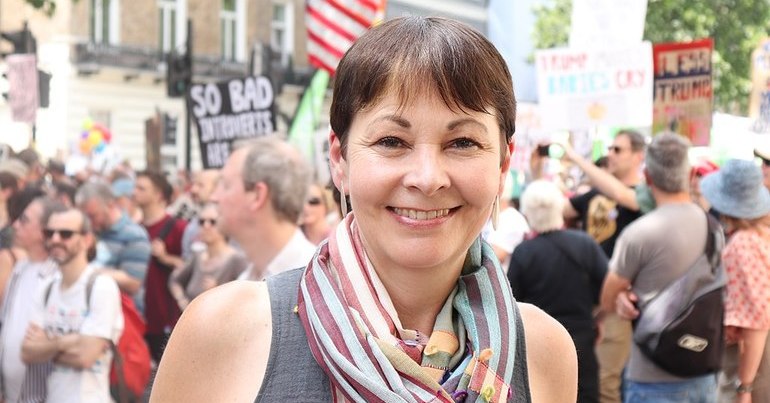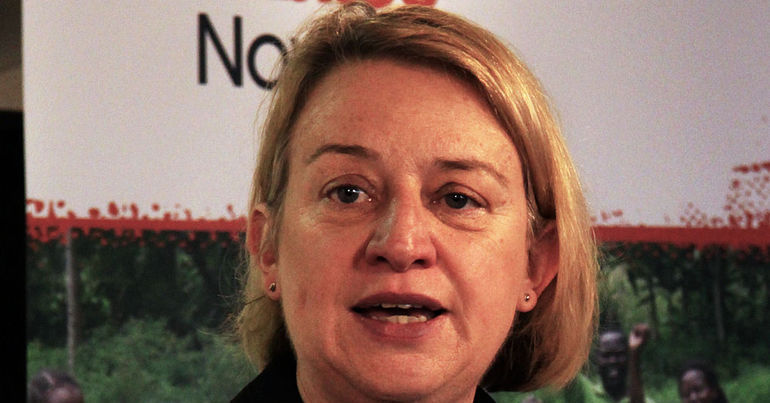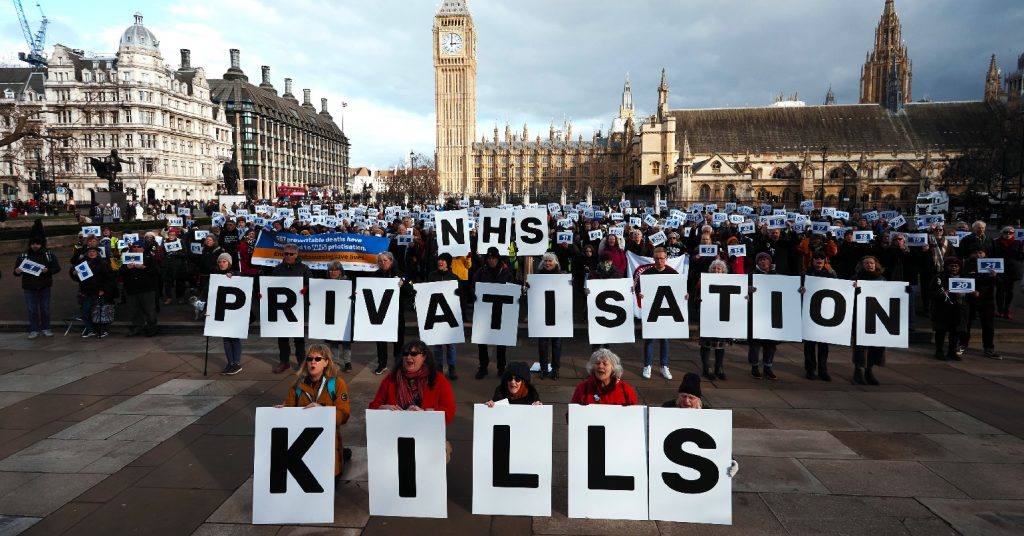Young Greens launch ‘unprecedented programme of political education’ – UK Green news round up issue 55
Young Greens launch ‘unprecedented programme of political education’

The Young Greens of England and Wales this week launched an “unprecedented programme of training and political education.” The youth branch of the Green Party of England and Wales announced it is running a series of eight online events in April and May, with more yet to be confirmed.
Among the events taking place over the next six weeks are training sessions on digital organising and local election campaigning, as well as talks from high profile figures in the Green Party and the wider left. Speakers confirmed to be delivering talks include Green Party of England and Wales co-leader Sian Berry, openDemocracy co-editor Adam Ramsay and War on Want executive director Asad Rehman.
Speaking to Bright Green, Young Greens co-chair Thomas Hazell said:
The coronavirus crisis has once again shown us that our economic and political system is broken. Decades of neoliberalism has left us with creaking, privatised public services, housing which is unaffordable and unfit for human habitation, and a workers’ rights settlement which has left millions precarious, vulnerable and exploited.
Change is long overdue – and it’s vital we get it right. That’s why the Young Greens is launching an unprecedented programme of training and political education, which will give our membership and the wider public a real understanding of the issues facing the world, and the skills they need to change it.
When we emerge from this crisis, we need to build a new future. And the Young Greens is nurturing a movement of radical, dedicated and talented activists to do just that.
This programme comes after the Young Greens held an online press and media training on Saturday attended by over 100 members.
The first in the programme is taking place on Tuesday April 14, with former Green Party principal speaker Derek Wall giving a talk on ‘Green alternatives to capitalism‘.
Caroline Lucas leads call for an immediate recall of a virtual parliament

With the government coming under increasing scrutiny for its handling of the coronavirus crisis, a group of over 30 parliamentarians demanded the parliament be immediately recalled to sit virtually. The call came in an open letter to Dominic Raab, coordinated by Green MP Caroline Lucas.
The letter, co-signed by the parliamentary leaders of the SNP, Liberal Democrats, Plaid Cymru, the SDLP and the Alliance Party read:
With the UK recording its worst daily fatality rate yet during the Coronavirus crisis – a record 980
announced yesterday, a higher number in a single day than any experienced by ltaly or Spain, and
one that still doesn’t capture properly the deaths in care homes or at home – we should be able to
hold the Government to account publicly.
It continued:
We recognise that it is still not possible for MPs and peers to travel to Westminster to sit in
parliament, but we believe the technological means are there now to ensure that a greater level of
remote accountability is possible.
Lucas told Bright Green that there is a “political vacuum” left by parliament not currently sitting. She said:
It beggars belief that Parliament still hasn’t been recalled, albeit virtually. This political vacuum cannot be allowed to continue. With mounting public and political unease about the way the Government is handling this emergency, it’s more urgent than ever that Ministers can be held to account.
While parliament can’t yet return to Westminster, the technology exists to enable a far greater level of remote accountability, even if that won’t be able to exactly replicate the way parliament normally functions. It isn’t lack of technology that’s preventing recall – it’s lack of political will.
Among the other signatories to the letter were Green members of the House of Lords Jenny Jones and Natalie Bennett.
Ross Greer takes on BBC for alleged rules breach over think tank transparency

Green MSP Ross Greer this week opened a battle with the BBC. The MSP has written to outgoing BBC director Tony Hall over the broadcasters’ failure to identify the funding behind a right wing think tank.
Greer’s letter relates to a feature in which a spokesperson for the Institute of Economic Affairs (IEA) took part in a debate on minimum alcohol pricing. Greer argues that the BBC had an editorial obligation to inform viewers that the right wing think tank has received funding from the alcohol industry.
According to The National, Greer described IEA as a “front group for corporations”. Greer said:
I’m deeply concerned that once again the BBC appears to have acted outwith its own guidelines and platformed the IEA, a front group for corporations, without even asking them to confirm where their money comes from.
That’s why I’ve written to the director-general asking that the BBC explain why it ignored its own guidelines and allowed this shady front group to criticise a public health policy which just so happens to impact the profits of its likely funders.
Media outlets have frequently faced criticism for failing to highlight the funding behind the IEA. In 2018, openDemocracy exposed that the IEA “receives regular funding” from the tobacco giant British American Tobacco.
Greens hit out at government PPE failures

This week, headlines have been filled with the growing scandal of the lack of personal protective equipment (PPE) available for frontline workers – especially medical staff. The UK government’s handling of the PPE shortage has triggered widespread criticism.
Prominent Greens were among those to call for a more effective approach from the government. Green member of the House of Lords Natalie Bennett wrote to Lord Bethell – the parliamentary under-secretary of state for health and social care – following a conversation she had with a nurse in the North West of England. In her letter, she asked for an urgent response to the following questions:
- What is the clinical basis of the changes to normal hygiene practice? Frontline staff feel the need to know why this is suddenly acceptable. What studies or information are these decisions based on? If it is a rationing system, how is the rationing process being decided? When and how will it end?
- When will medical staff be allowed to order a SARS-CoV-2 test for every patient (and fellow staff member) they consider it to be clinically appropriate for? Is this budgeted for and planned for in terms of testing capacity?
- Why are staff being threatened with disciplinary procedures for going public? As whistleblowers, should they not be protected?
In an article for Bright Green, Bennett went on to state that “airy assurances from a Westminster press conference won’t cut it”, and that health workers “deserve, at a minimum, honest, evidenced answers to their concerns.”
Bennett was joined in her questioning of the UK government’s approach by her fellow member of the House of Lords Jenny Jones. Writing for Green World, Jones said:
The government has yet to release figures giving their estimate for PPE needed each week during this crisis. Despite repeated assurances, it is clear to everyone that they don’t have enough and that is the reason why no one at the top of government wants to give their purchasing sections any instruction except ‘buy as much as you can’.
And the Scottish government also came under criticism from Greens for its response. Green MSP Alison Johnstone called on the Scottish government to “urgently address” the concerns trade unions have expressed with regards to PPE. She said:
Everyone involved in the delivery of social care needs to have confidence in the provision of personal protective equipment and the guidance on how and when it should be used. It’s clear that isn’t currently the case.
Whether working in a care home, or visiting a vulnerable person at home, care workers must be provided with appropriate equipment and adequate guidance to keep both themselves and the person they are caring for safe.
The Scottish Government must urgently address the significant concerns highlighted by the care workers’ trade unions.




Leave a Reply